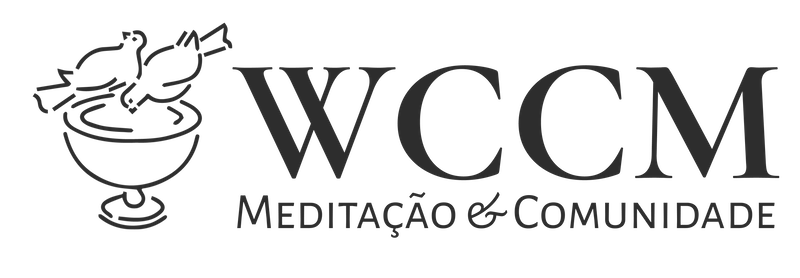Quarta-feira da Terceira Semana da Quaresma
Psicologicamente, todos nós precisamos aspirar a uma individualidade saudável. Uma forma importante de cumprir isto é estar perto de indivíduos saudáveis que tenham um efeito curativo e equilibrador sobre nós, permitindo-nos, à nossa maneira, ajudar os outros. Mas os indivíduos saudáveis que têm este efeito são poucos e raros, especialmente numa sociedade tão perturbada como a nossa.
Ter esta aspiração já é um bom começo e desenvolve-se ao termos consciência de que temos espaço para melhorias – controlando os nossos sentimentos negativos, desenvolvendo a nossa capacidade de dar atenção aos outros e assim por diante. É consolador saber que, embora não sejamos indivíduos muito saudáveis, isso não significa que sejamos todos maus. Longe disso. Ninguém é perfeito. Aceitar as nossas deficiências, no entanto, significa que nos recusamos a ser arrastados para a autor rejeição ou o ódio de nós mesmos. Para isso, precisamos sentir o amor, a aceitação e o perdão incondicional daqueles que conhecem ou até mesmo sofreram com as nossas falhas. A comunidade e a família – se nelas existirem indivíduos suficientemente saudáveis – proporcionam o amor que nos permite ser tão amorosos quanto possível na fase de totalidade que atingimos. Jesus insistiu que não veio para condenar, mas para curar e porque uma verdadeira igreja não exclui os pecadores, mas os acolhe.
O que significa individualidade saudável? A melhor definição é um ser humano que exala isso.
Todo ser humano é afetado por um conflito interno entre dois aspectos de sua individualidade que se esforçam, ao longo da vida, para serem integrados: como uma imagem dupla que tenta arduamente ser unida. Um aspecto da nossa individualidade interpreta tudo de fora, sendo ele mesmo o centro ilusório de tudo. Se ficarmos presos nisso, buscaremos poder e controle a qualquer custo sobre os outros e nos tornaremos cruéis (para os outros ou para nós mesmos) e dissociados da realidade. É necessária uma grande quantidade de energia, que talvez não esteja disponível neste reino de tempo e espaço, para nos tirar deste auto-órbita extrema. Mas mesmo a maioria, o indivíduo menos tragicamente dividido e isolado, permanece infeliz e cria infelicidade. No entanto, eles ainda estão abertos à graça sempre presente da cura. A maioria de nós, mesmo enquanto progredimos, oscila entre os dois estados.
O indivíduo não saudável ainda precisa dos outros, mas os trata como objetos para seus próprios fins. Eles consideram a influência curativa da comunidade um tratamento difícil de aceitar. Um relacionamento honesto e aberto é difícil, exceto no nível de profunda unidade espiritual, como adoração ou contemplação conjunta. Geralmente, porém, parece mais fácil relaxar e fugir com outras pessoas como parte de uma multidão, encontrando uma unidade fugaz em algumas experiências compartilhadas (festas ou esportes). A comunidade dissolve a divisão enquanto as multidões permitem que cada eu dividido esconda e proteja dos outros o seu ser único e vulnerável.
A cura é progressiva e um caminho estreito. É um significado oculto e constante de toda a vida. Na prática contemplativa equilibramos, harmonizamos e unimos o eu dividido à medida que morremos para a ilusão da divisão, desviando completamente a atenção de nós mesmos. Embora temamos e resistamos a isso, quando isso acontece, expandimo-nos para a verdadeira liberdade e alegria de ser. Descobrimos até que estamos funcionando melhor na vida diária. O reino está próximo. E o mesmo acontece com o Amigo: o indivíduo saudável que nos comunica sua unidade quando nos sentimos mais isolados.
Texto original
Wednesday Third Week of Lent
Psychologically, we all need to aspire to a healthy individuality. One important way to fulfil this is to be close to healthy individuals who have a healing and balancing effect upon us, allowing us in our own way to be of help to others. But healthy individuals who have this effect are few and far between especially in a society as disturbed as ours.
Just having this aspiration is a good beginning and it develops by being aware that we have room for improvement – controlling our negative feelings, developing our capacity to give attention to others and so on. It’s consoling to know that, although we may not be very healthy individuals, does not mean we are all bad. Far from it. No one is perfect. Accepting our shortcomings, however, means we refuse to be dragged into self-rejection or self-hatred. For this, we need to feel the love and acceptance and unconditional forgiveness of those who know about or have even suffered from our faults. Community and family – if there are sufficiently healthy individuals in them – provide the love that allows us to be as loving as we can be at the stage of wholeness we have reached. Jesus insisted he did not come to condemn but to heal and why a true church does not exclude sinners but welcomes them.
What does healthy individuality mean? The best definition is a human being who exudes it.
Every human being is affected by an inner conflict between two aspects of their individuality which are striving, throughout life, to be integrated: like a double image trying hard to be set as one. One aspect of our individuality interprets everything from the outside, with itself as the illusory centre of everything. If we get stuck in this, we pursue power and control at any cost over others and become cruel (to others or ourselves) and disassociated from reality. A great deal of energy, which maybe is not available in this realm of time and space, is needed to pull us out of this extreme self-orbit. But even the majority, the less tragically divided and isolated individual, remains unhappy and creates unhappiness. However, they are still open to the ever-present grace of healing. Most of us even while making progress oscillate between the two states.
The unhealthy individual still needs others but treats them as objects for their own ends. They find the healing influence of community a difficult treatment to take. Honest, open relationship is difficult, except at the level of deep spiritual unity such as worship or contemplation together. Generally, however, it seems easier to relax and escape with others as part of a crowd, finding fleeting unity in some shared experiences (partying or sport). Community dissolves division while crowds allows each divided self to hide and protect from others its unique and vulnerable being.
Healing is progressive and a narrow path. It is a hidden, constant meaning of all life. In contemplative practice we balance, harmonise and unite the divided self as we die to the illusion of dividedness by taking the attention off ourselves altogether. Though we fear and resist this, when it happens, we expand into true liberty and joy of being. We even find that we are functioning better in daily life.
The kingdom is close at hand. And so is the Friend: the healthy individual who communicates his oneness to us when we feel most isolated.






